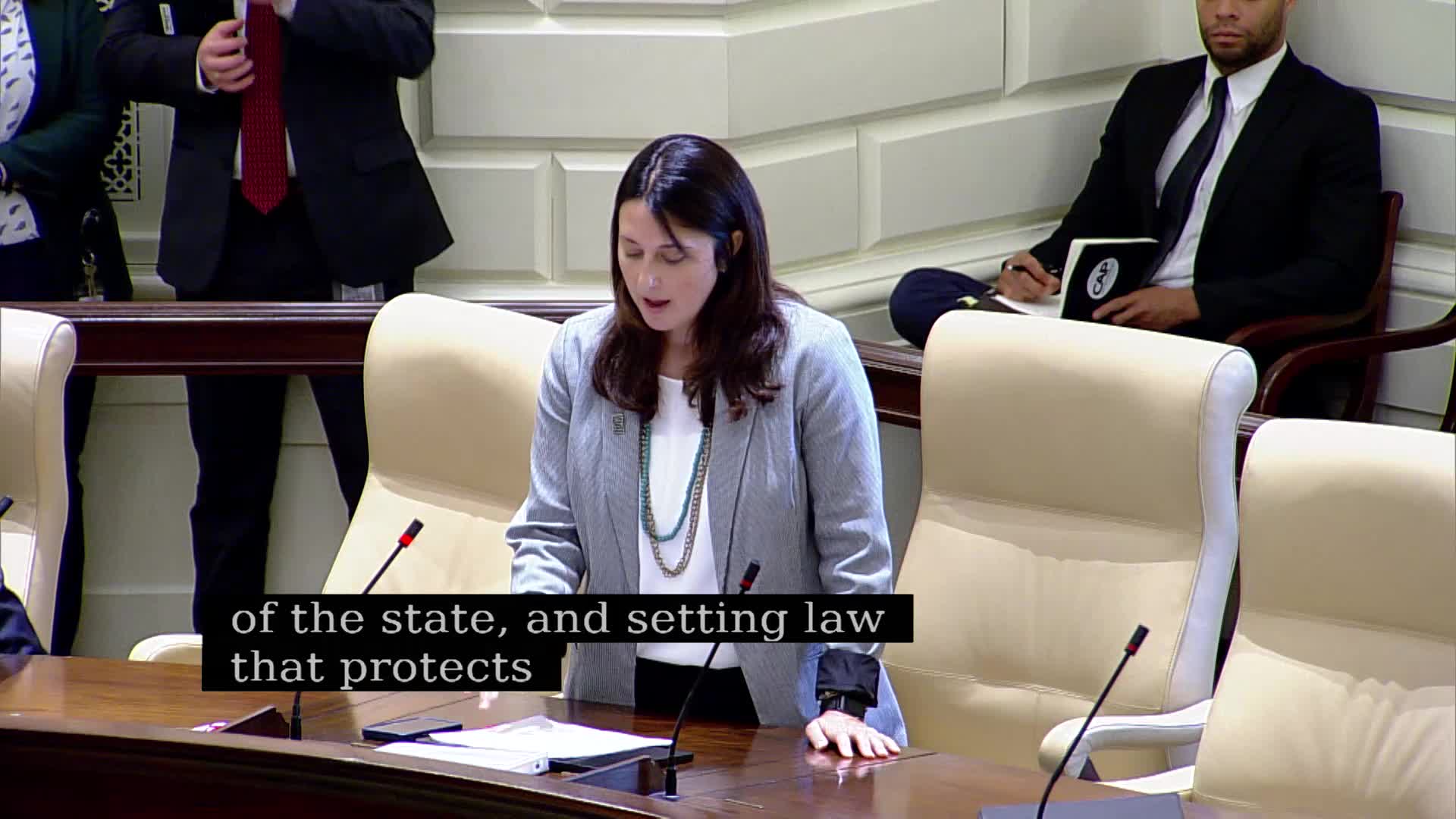Massachusetts Bill Mandates Cell Phone Ban While Allowing Local School Policy Flexibility
July 31, 2025 | 2025 Legislature MA, Massachusetts
This article was created by AI summarizing key points discussed. AI makes mistakes, so for full details and context, please refer to the video of the full meeting. Please report any errors so we can fix them. Report an error »

In a recent Senate session, Massachusetts lawmakers discussed a significant bill aimed at regulating cell phone use in schools, emphasizing the importance of local control in education. The proposed legislation mandates that all school districts implement a "bell to bell" ban on cell phone usage during school hours, while also allowing for exceptions tailored to the unique needs of individual communities.
Supporters of the bill highlighted the necessity of local decision-making, arguing that each school district has distinct challenges and resources. For instance, Worcester's educational needs differ greatly from those of wealthier districts like Wellesley. The bill aims to empower local school committees to create policies that reflect their specific circumstances, ensuring that decisions are made with the best interests of students in mind.
One senator pointed out that while the bill sets a standard for cell phone usage, it does not address the broader issue of digital literacy and the safe use of technology outside of school hours. They noted that educators play a crucial role in teaching students how to navigate the digital world responsibly, particularly in light of the mental health challenges associated with social media.
The discussion also touched on the disparities in resources among school districts. For example, Worcester has over 30,000 Chromebooks, many of which are outdated and in need of replacement. The senator emphasized the importance of adequate funding for schools to ensure that all students have access to the necessary technology for learning.
In addition to the cell phone policy, the session included conversations about funding for programs that support youth development, particularly for girls, in understanding the impacts of social media. These initiatives aim to equip students with the skills to engage with technology safely and responsibly.
As the Senate continues to deliberate on this bill, the focus remains on balancing the need for regulation with the recognition that local communities are best positioned to determine their educational policies. The outcomes of this legislation could have lasting implications for how technology is integrated into the classroom and how students are prepared for the challenges of the digital age.
Supporters of the bill highlighted the necessity of local decision-making, arguing that each school district has distinct challenges and resources. For instance, Worcester's educational needs differ greatly from those of wealthier districts like Wellesley. The bill aims to empower local school committees to create policies that reflect their specific circumstances, ensuring that decisions are made with the best interests of students in mind.
One senator pointed out that while the bill sets a standard for cell phone usage, it does not address the broader issue of digital literacy and the safe use of technology outside of school hours. They noted that educators play a crucial role in teaching students how to navigate the digital world responsibly, particularly in light of the mental health challenges associated with social media.
The discussion also touched on the disparities in resources among school districts. For example, Worcester has over 30,000 Chromebooks, many of which are outdated and in need of replacement. The senator emphasized the importance of adequate funding for schools to ensure that all students have access to the necessary technology for learning.
In addition to the cell phone policy, the session included conversations about funding for programs that support youth development, particularly for girls, in understanding the impacts of social media. These initiatives aim to equip students with the skills to engage with technology safely and responsibly.
As the Senate continues to deliberate on this bill, the focus remains on balancing the need for regulation with the recognition that local communities are best positioned to determine their educational policies. The outcomes of this legislation could have lasting implications for how technology is integrated into the classroom and how students are prepared for the challenges of the digital age.
View full meeting
This article is based on a recent meeting—watch the full video and explore the complete transcript for deeper insights into the discussion.
View full meeting
